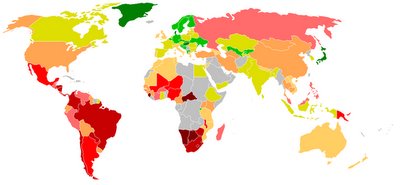A freind pointed me to an interesting essay by Paul Graham. Got me thinking. Having done a startup myself, I completly agree with Paul. The concept of "employement" and "job" is deeply embeded in the psyche of some people in places like India and it is difficult to change. We see this pattern in some parts of the US as well.Here is part of the essay:In America Work Is Less Identified with Employment.
The problem in more traditional places like Europe and Japan goes deeper than the employment laws. More dangerous is the attitude they reflect: that an employee is a kind of servant, whom the employer has a duty to protect. It used to be that way in America too. In 1970 you were still supposed to get a job with a big company, for whom ideally you'd work your whole career. In return the company would take care of you: they'd try not to fire you, cover your medical expenses, and support you in old age.
Gradually employment has been shedding such paternalistic overtones and becoming simply an economic exchange. But the importance of the new model is not just that it makes it easier for startups to grow. More important, I think, is that it it makes it easier for people to start startups.
Even in the US most kids graduating from college still think they're supposed to get jobs, as if you couldn't be productive without being someone's employee. But the less you identify work with employment, the easier it becomes to start a startup. When you see your career as a series of different types of work, instead of a lifetime's service to a single employer, there's less risk in starting your own company, because you're only replacing one segment instead of discarding the whole thing.
The old ideas are so powerful that even the most successful startup founders have had to struggle against them. A year after the founding of Apple, Steve Wozniak still hadn't quit HP. He still planned to work there for life. And when Jobs found someone to give Apple serious venture funding, on the condition that Woz quit, he initially refused, arguing that he'd designed both the Apple I and the Apple II while working at HP, and there was no reason he couldn't continue.





